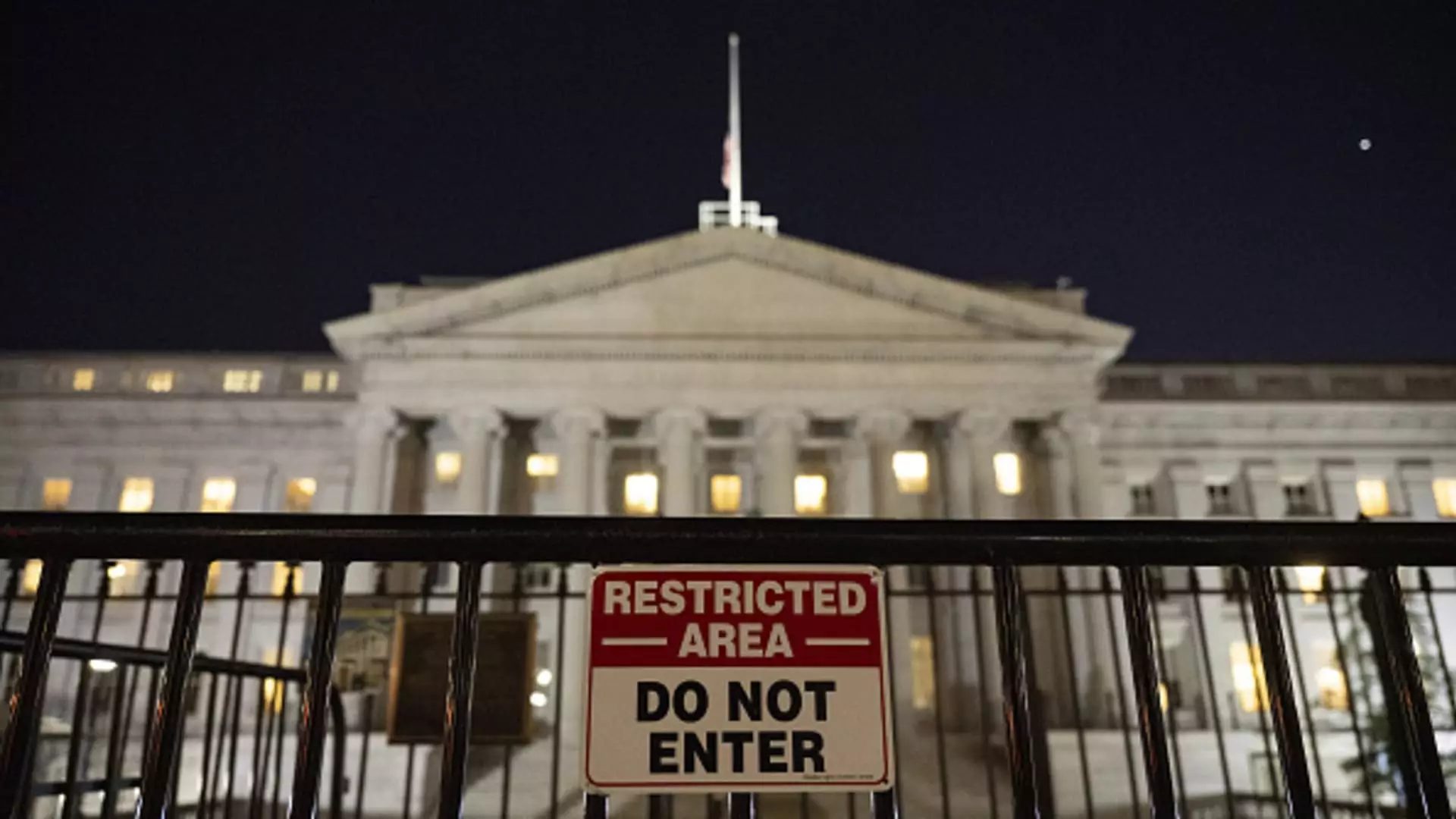Recent revelations regarding a breach of the U.S. Treasury Department’s cybersecurity defenses underscore a growing vulnerability in critical government infrastructures. According to a report by the Washington Post, Chinese government hackers successfully infiltrated significant divisions of the Treasury, particularly the Office of Foreign Assets Control (OFAC) and the Office of Financial Research. This alarming development raises serious questions about the integrity of U.S. economic security mechanisms, especially at a time when relations between the U.S. and China are particularly strained.
The Treasury Department’s notification to lawmakers indicated that unclassified documents were compromised in what officials are characterizing as a “major incident.” Notably, hackers reportedly targeted the office of Treasury Secretary Janet Yellen, highlighting the severity and the potential high stakes involved. The breach not only impacts operational security but also puts sensitive economic strategies at risk, particularly those plans that could affect China’s standing within the global economy.
China’s response to the accusations has been defiant, with Liu Pengyu, a spokesperson for the Chinese Embassy in Washington, denouncing the claims as “irrational” and devoid of factual merit. This counter-attack emphasizes a broader strategy from Beijing to deflect criticism and assert a stance of victimhood in the geopolitical cyber warfare narrative. By labeling the allegations as baseless, China aims to carve out a space where it can continue to engage in cybersecurity activities while denying responsibility for any malicious attacks.
The breach raises important strategic implications regarding the ongoing tensions between the U.S. and China. The American government views China as its primary foreign policy challenge, and this incident is likely to exacerbate existing distrust. Beyond immediate concerns about cyberattacks, the incident reflects a troubling trend in which sensitive information related to economic sanctions can be exploited. The U.S. has already incorporated sanctions as a principal tool in its foreign policy, particularly targeting Chinese firms and individuals purported to be involved in illicit activities.
The compromise of the Treasury Department is indicative of a larger pattern of vulnerabilities faced by governmental and financial institutions in the U.S. The involvement of third-party providers, such as BeyondTrust, further complicates the issue, demonstrating that cybersecurity is not only about securing internal networks but also managing the risks associated with external partnerships. As cyber warfare tactics evolve, the U.S. government must prioritize strengthening its defenses and consider comprehensive strategies that include not just technological upgrades but also policy reforms aimed at deterrence.
The breach at the U.S. Treasury sheds light on the ticking clock of cybersecurity challenges that governments must combat. As nation-states continue to leverage cyber capabilities as a tool of espionage and economic warfare, the United States must fortify its defenses and establish a proactive approach to safeguard sensitive information. This incident serves as a stark reminder of the risks involved in an interconnected digital world and signals the necessity for enhanced vigilance in national cybersecurity strategies.


Leave a Reply